A selection of old photos of St. Petersburg
Categories: Culture | History | Nations | Society
By Pictolic https://pictolic.com/article/a-selection-of-old-photos-of-st-petersburg.htmlWe offer you a selection of photos of pre-revolutionary St. Petersburg and Soviet Leningrad. Curiously, some places don't seem to have changed at all :).
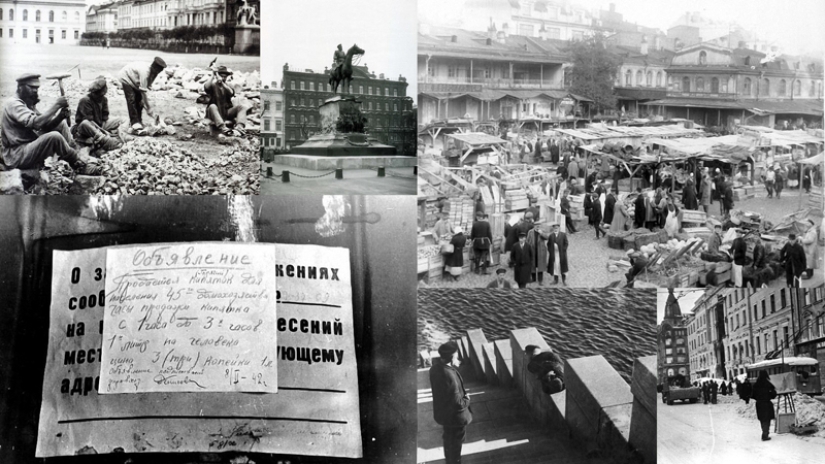
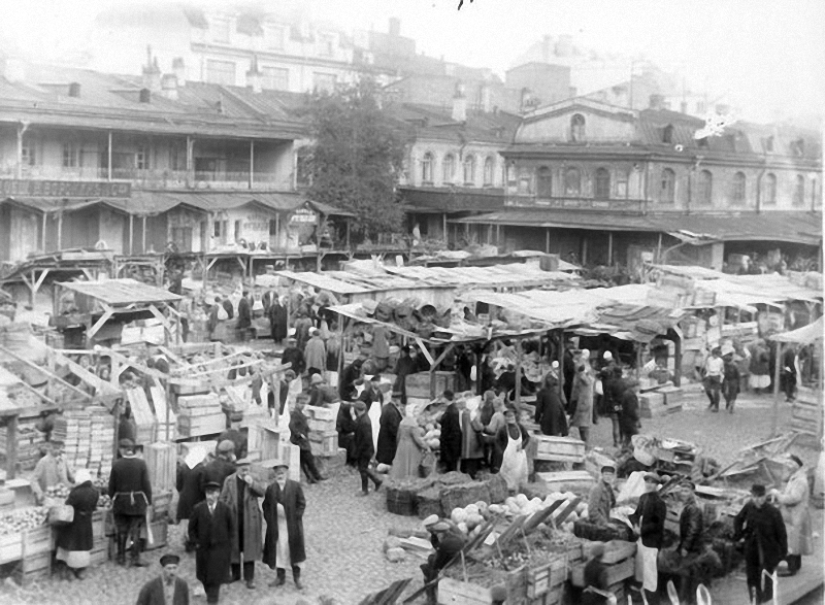
Apraksin yard. 1924. Here, in the course, nothing has changed much :)))
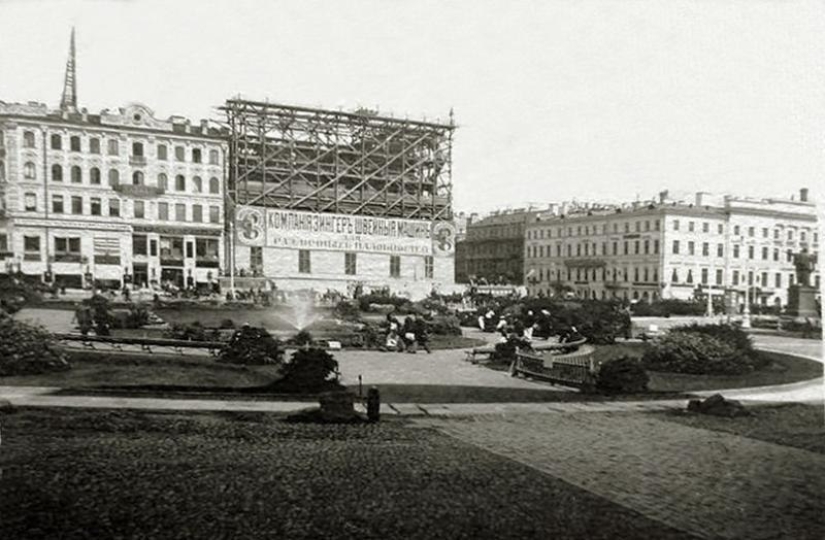
Construction of the house of the Singer company. Photo 1902-1904. Where the Vkontakte office is now in the tower :).
It was the most modern building of that time, which for a long time caused a negative reaction of old fans of classical St. Petersburg architecture.
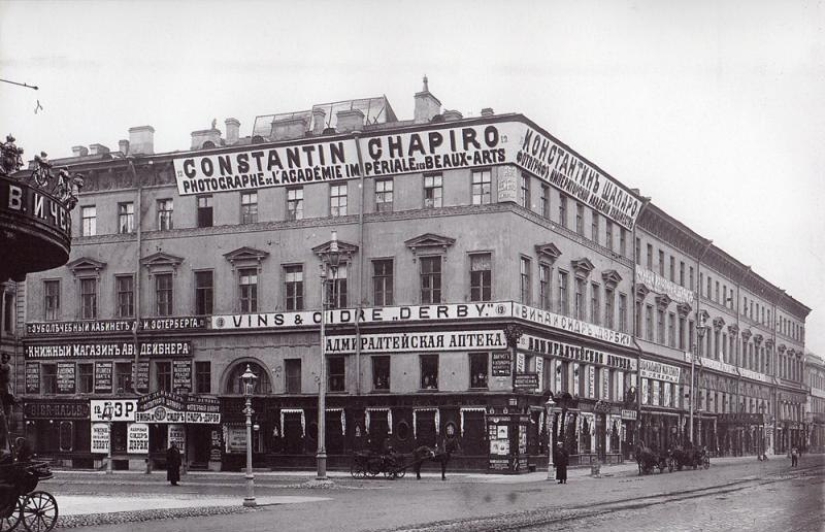
The corner of Nevsky and Bolshaya Morskaya. Photo 1900-1907.
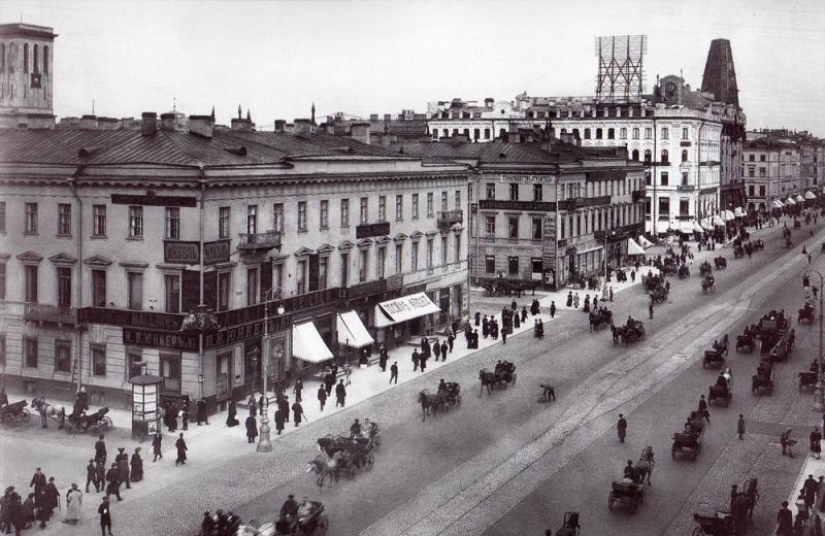
Nevsky Prospekt near Bolshaya Konyushennaya. Photo of 1904.
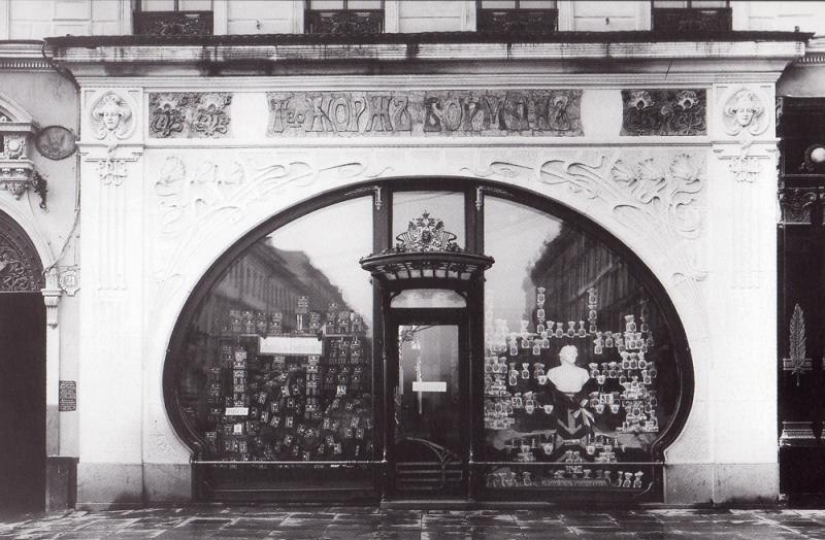
Shop window of the Georges Bormann partnership. Nevsky-21. The partnership produced biscuit products, chocolates, caramels, montpensiers and lollipops. Up to 150 poods (≈ 2,457 kg) of different varieties of products were produced per day at the Bormanov enterprise. The following varieties of sweets were produced: "Murka", "Party", "Chick", "Blind Man's Buff", "Georges", "Lobi-Toby", "Mignon", "Mushrooms", "Page", "Parade", "Twelfth year", "Russian army"and " Triumph". Prices for chocolates ranged from 65 kopecks to 1 ruble 75 kopecks per pound (≈ 0.4095 kg). Photo 1910-1911.
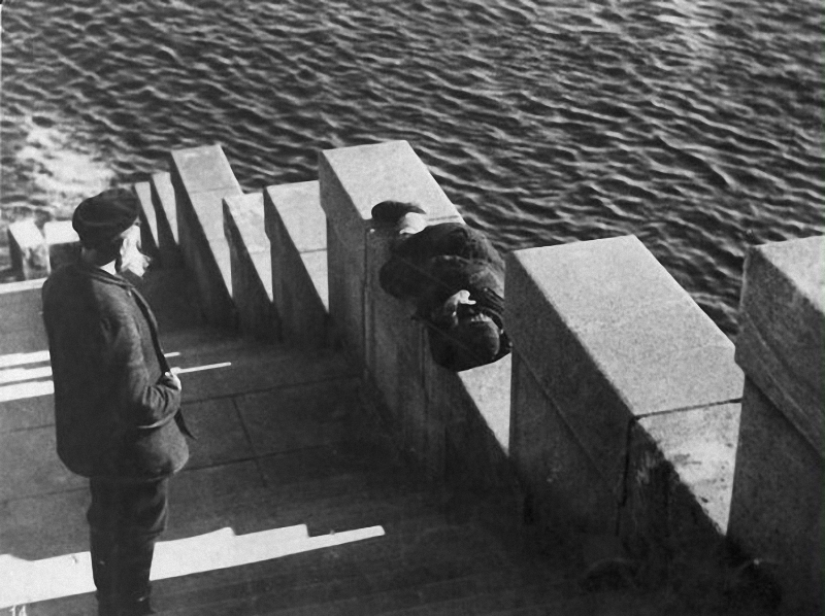
A homeless man on the Neva. 1927.
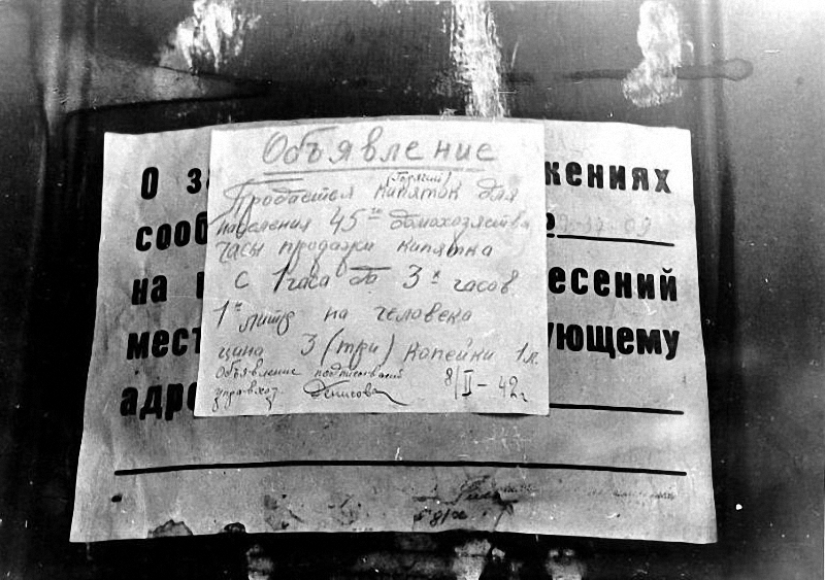
The blockade. An ad for the sale of boiling water. 1942.
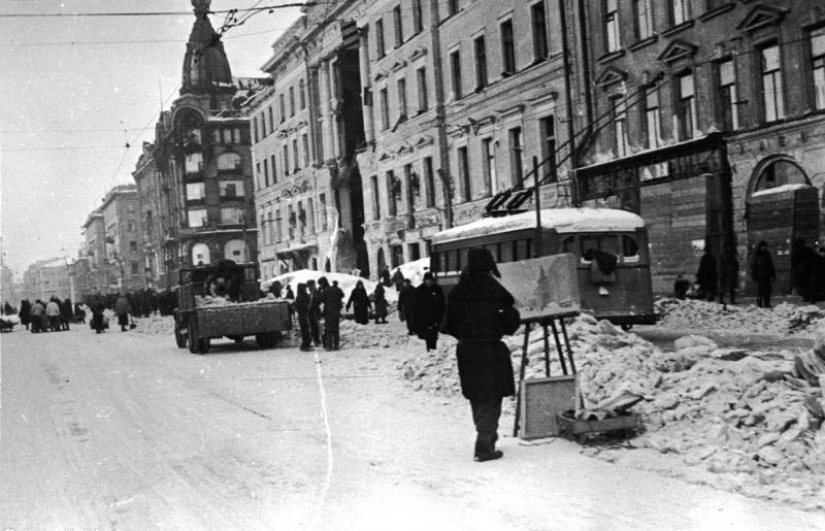
The blockade. The artist at the destroyed house of Engelhardt on Nevsky Prospekt.
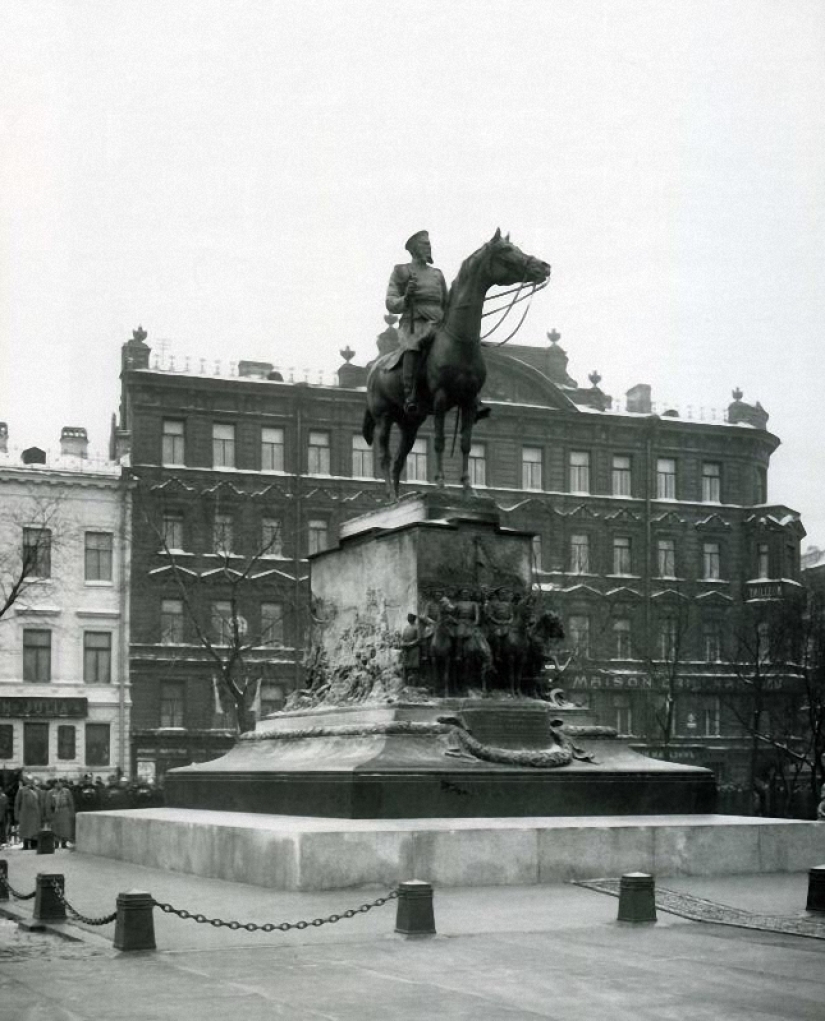
Russian Russian monument to Grand Duke Nikolai Nikolaevich (the elder), Field Marshal, commander-in–chief of the Russian Army in the Russo-Turkish War of 1877-1878, on Manezhnaya Square (the work of the sculptor Canon; the monument was opened on January 12, 1914; dismantled in 1918). Now there is a fountain and busts of great Italian architects – A. Rinaldi, J. Quarenghi, K. Rossi and B. Rastrelli. One of the best gifts to the city for the tercentenary (from the Italian government).
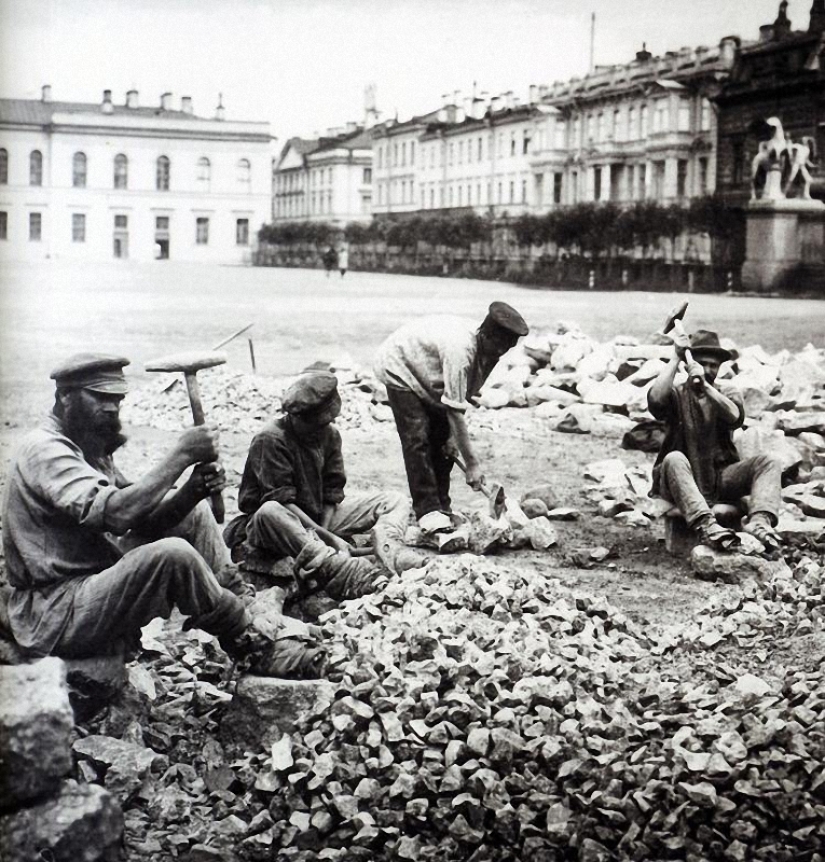
Masons on Konnogvardeysky Lane. 1903.
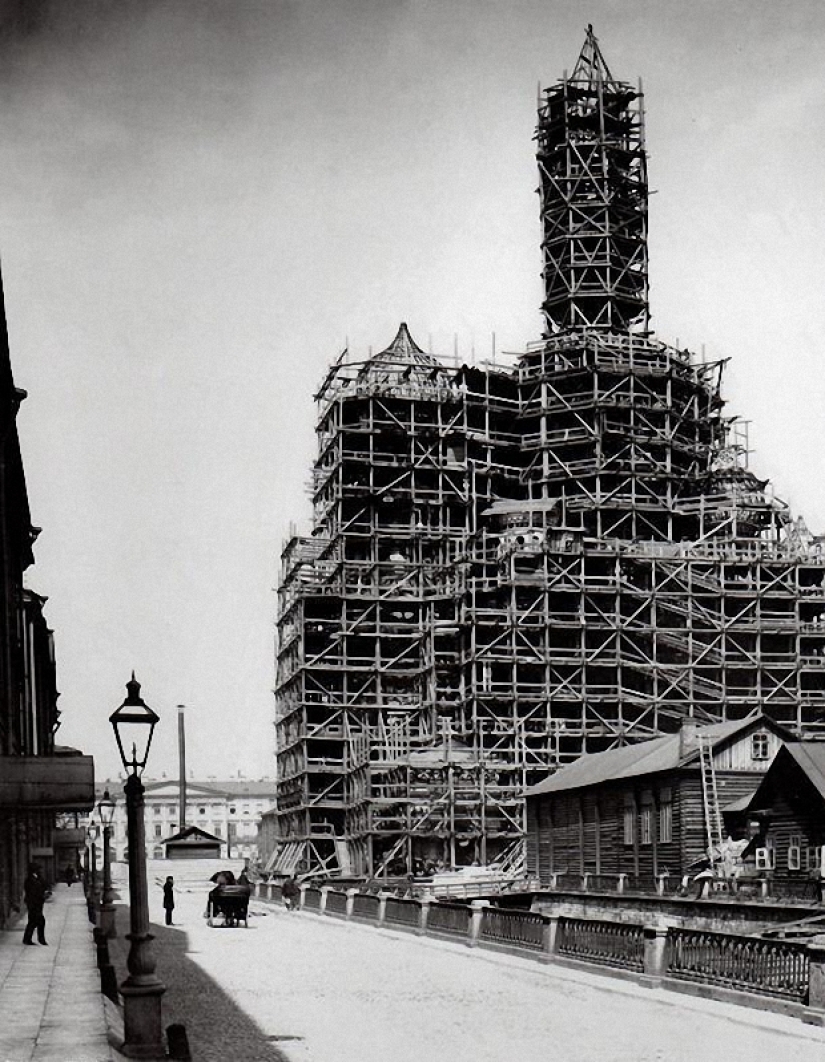
Construction of the Church of the Resurrection of Christ. Photo 1900-1906
Elena Yablochkina writes: It is known that the construction of St. Isaac's Cathedral was completed in 1858. But for some unknown reason, the forests remained on its walls for a very long time. At a time when they were not removed, a legend was born, which said that the forests would be removed only when the royal house of the Romanovs ceased to exist. Who could have known about this? But, no matter what, the forests were removed just before Emperor Nicholas II abdicated the imperatorship.
A similar story happened with the "Savior-on-Blood".
The construction of the cathedral was delayed for 24 years. It was completed only in 1907. In the 70s of the 20th century, the cathedral began to be restored. But the restoration was delayed for a long time, everyone got used to the sight of the temple surrounded by forests. The restoration was already over, and the scaffolding was still not removed. People began to say that this is not for nothing, that there will be a change of the current regime of power. The legend was confirmed this time too. The scaffolding was removed from the cathedral shortly before the events of August 1991.
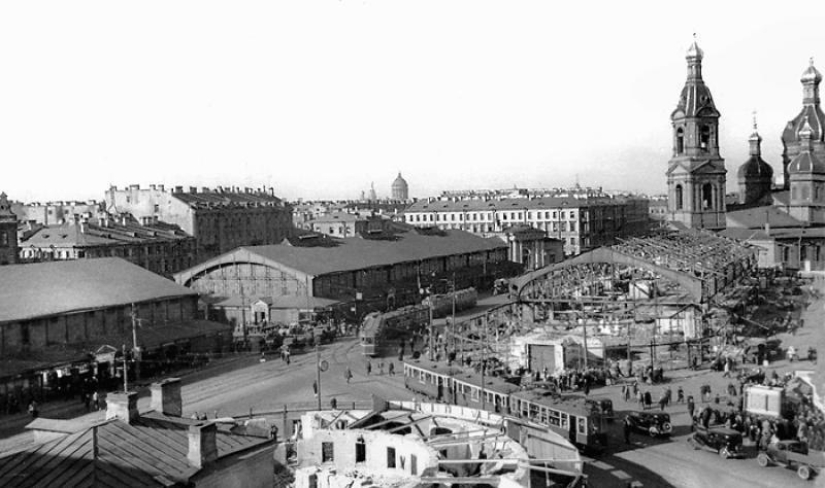
Analysis of the Haymarket pavilions. 1936.
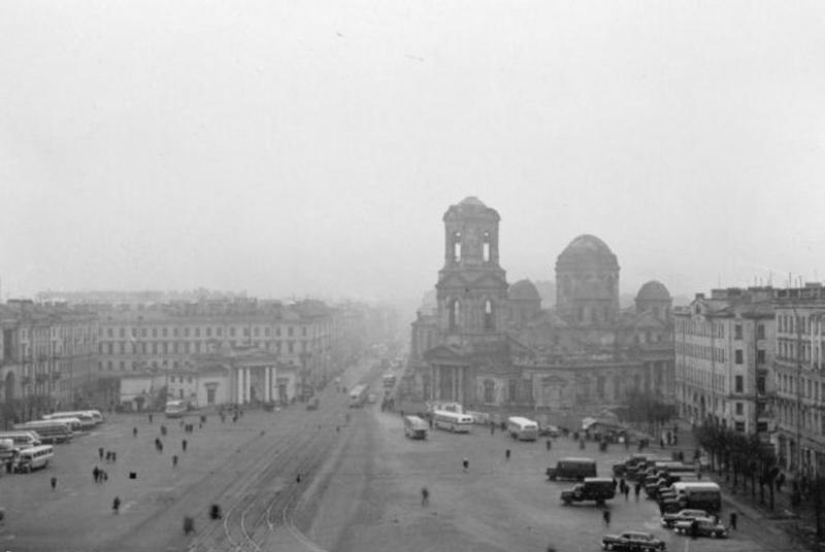
Before the explosion of the church "Spas na Sennaya". 1961.
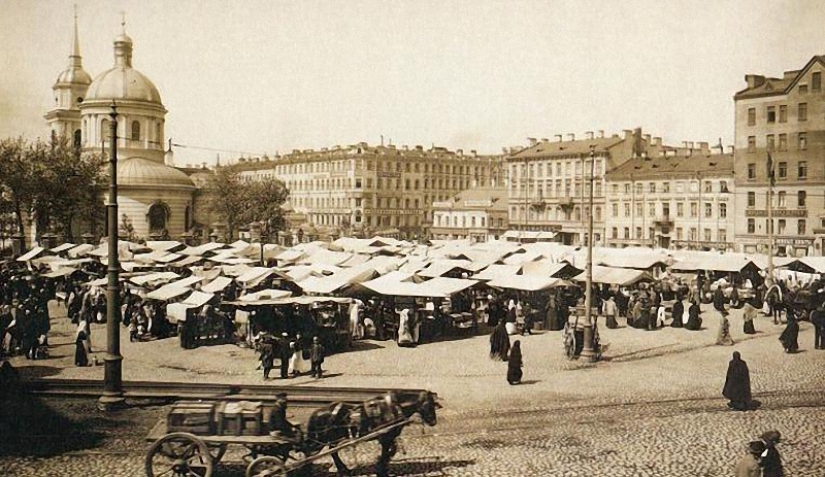
Pokrovsky market on Pokrovskaya Square (now Turgenev Square). 1914.
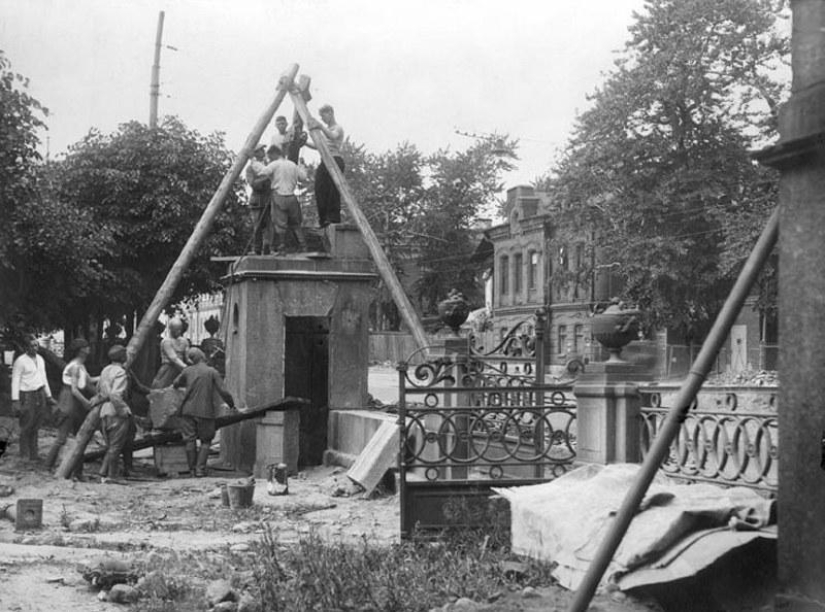
Restoration of the fence of the Tauride Palace, destroyed by a high-explosive bomb. 1943.
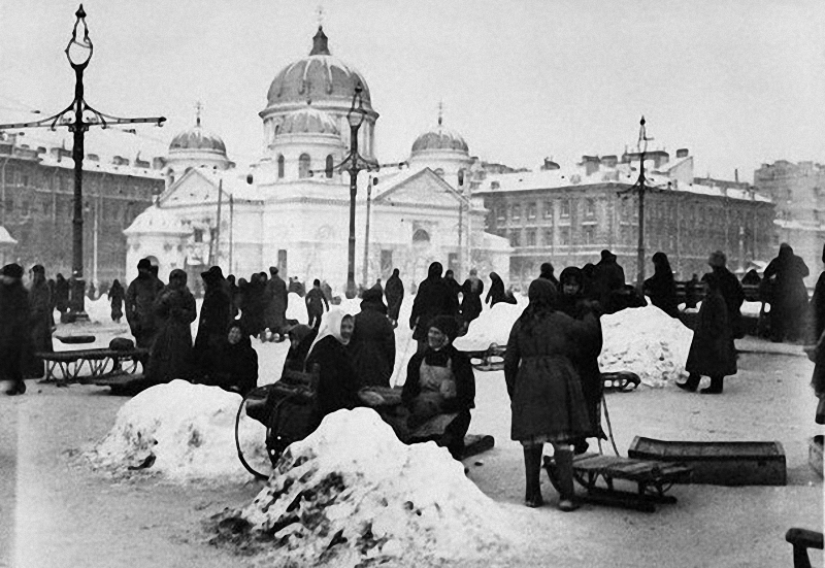
Znamenskaya Square in 1922. (now pl.Vosstaniya, near the Moscow railway station).
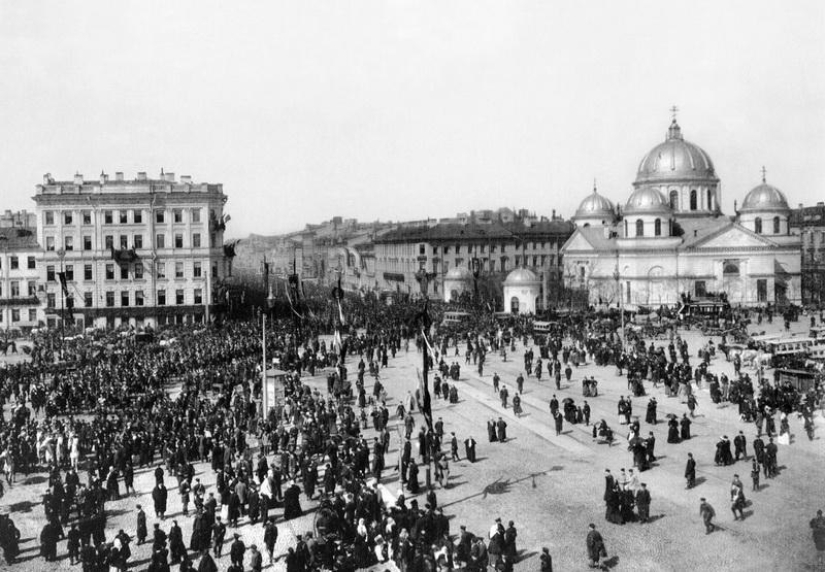
It was popularly called Znamenskaya after the chapel of the Church of the Sign of the Most Holy Theotokos, consecrated in 1765. In 1794 — 1804, according to the project of architect F. I. Demertsov, the church was rebuilt in stone. In 1809, a cast-iron fence and two chapels appeared (both were rebuilt by P. A. Chepyzhnikov during the repair of 1863-1865). Znamenskaya Square and Znamenskaya Street (now Ploshchad and Vosstaniya Street) were named after the church ("Znamenskaya"). The bridge over the Ligovsky Canal, located on Nevsky Prospekt, was also called Znamensky.
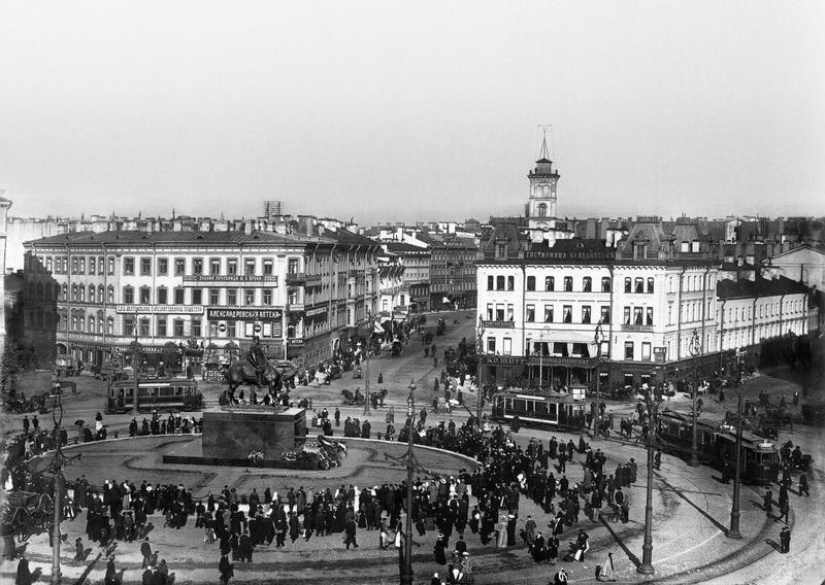
In the 1870s, according to the project of architect D. D. Sokolov, the house of the clergy of the Znamenskaya Church (Ligovsky, 39) was built, which became an important element of the ensemble of Vosstaniya Square. The church was dismantled in early 1941 . The church was still active in the first half of 1937). In 1955, the ground lobby of the metro station "Ploshchad Vosstaniya"was opened on the site of the church. In 2007, a memorial plaque in memory of the Znamenskaya Church was installed on the wall of the station lobby.
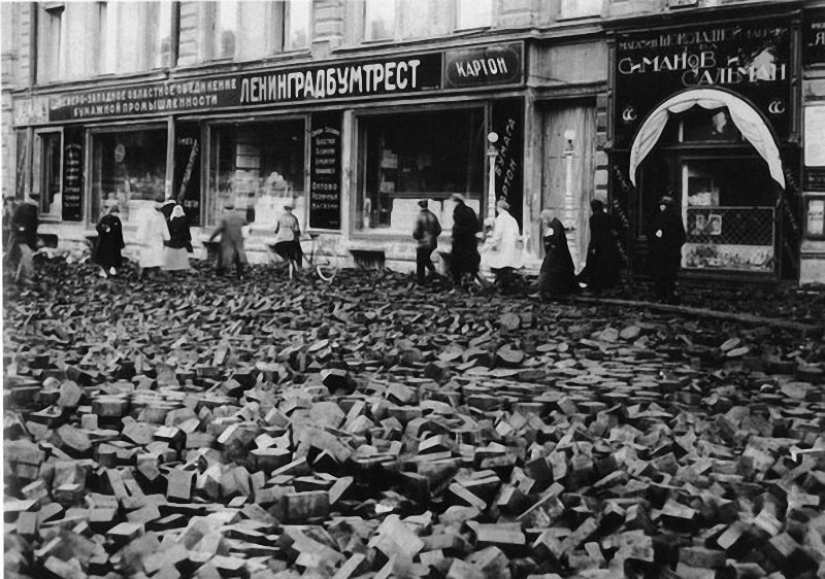
A wooden pavement destroyed by a flood on October 25 Avenue (Nevsky Ave.). 1924.
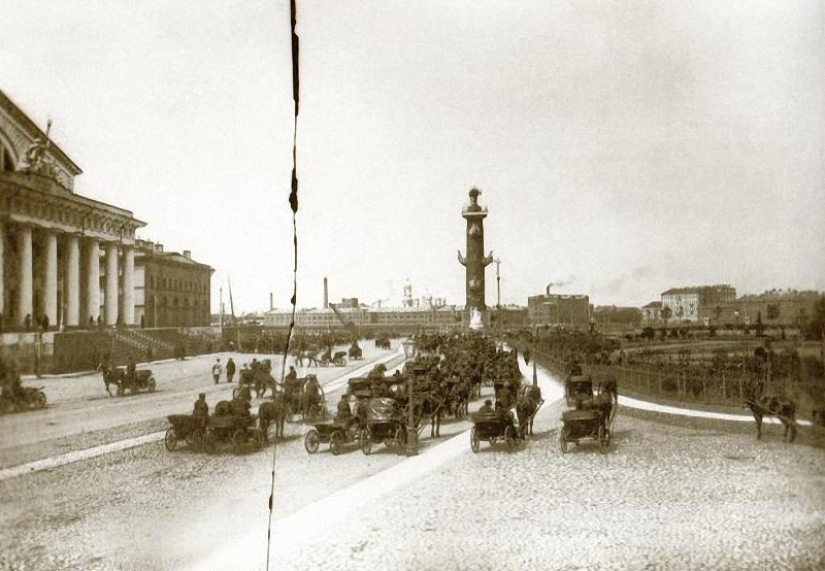
Exchange Square. 1903.
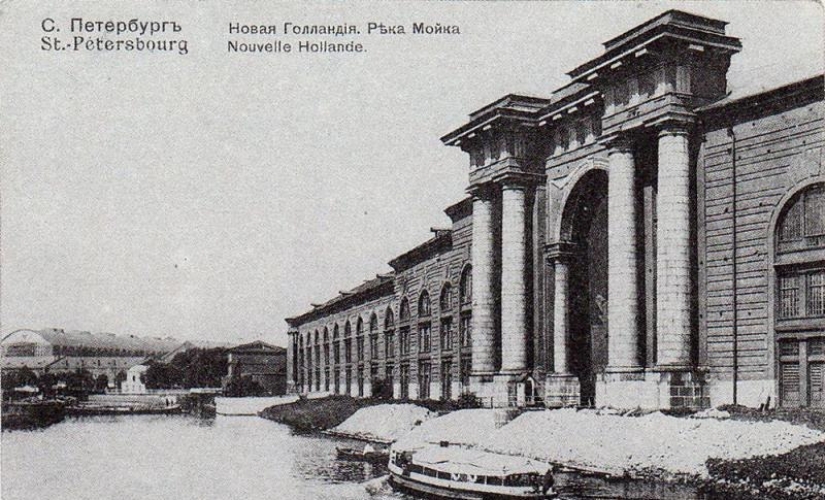
New Holland. 1900-1914.
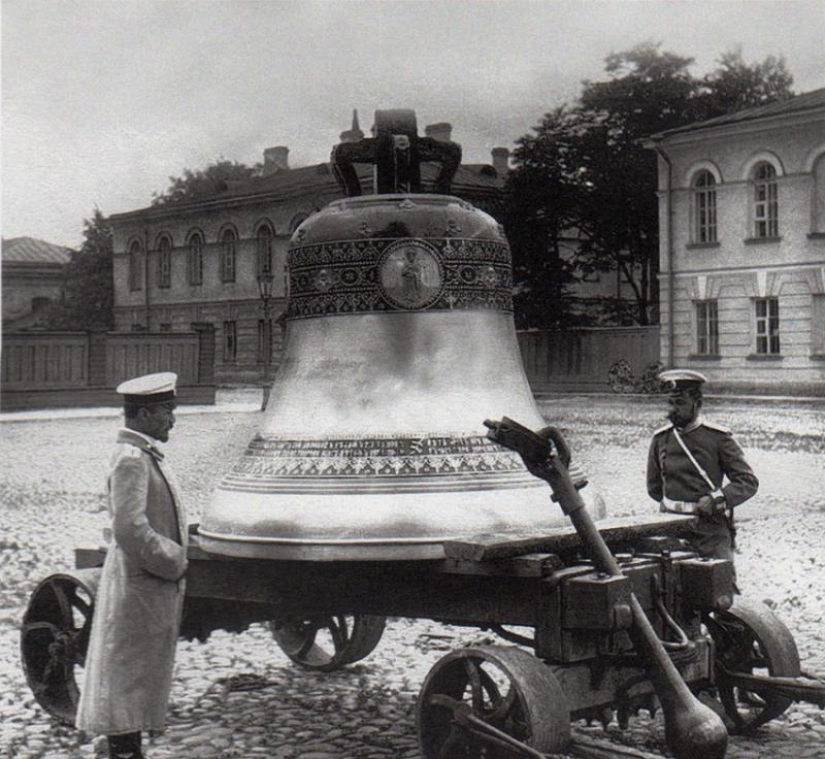
A new bell for the Cathedral of the Holy Apostles Peter and Paul. 1905.
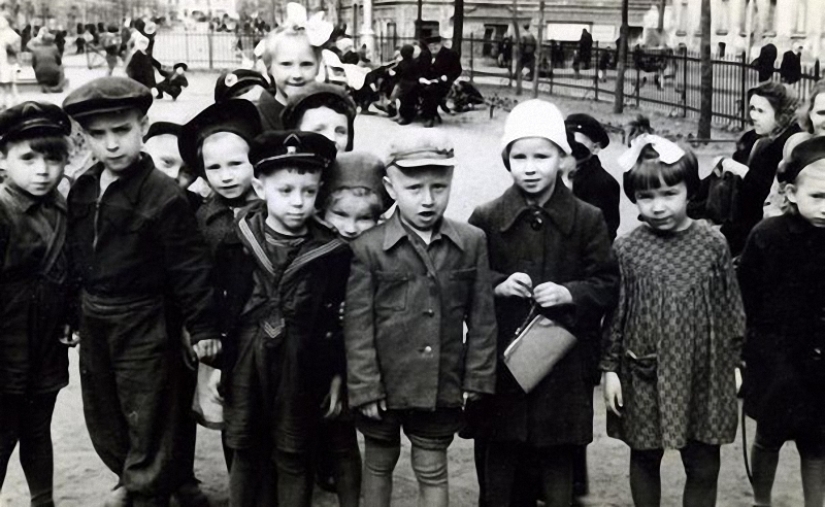
Children on Pushkinskaya Street. one thousand nine hundred fifty three
Keywords: Culture | Russian Federation | History | St. Petersburg | Peoples | Society | Leningrad | Place | Pre-revolutionary era
Post News ArticleRecent articles

Man-made giant statues, impressive not only for their beauty, but also for their size, are found in many countries of the world. ...

Not all the house where they filmed the cult movies and TV shows, become "house-museums". Many of them are then sold as the ...
Related articles

Is it possible to laying wood to name a form of art? Turns out you can. Because in the world there are such people, which gently ...

Inspired by the observations of the countryside around Epping in Essex, where she grew up, Jill Barklem came up with a series of ...

The Indochina Peninsula, located in southeast Asia, is a favorite place for tourists all over the world. Myanmar, Thailand, Laos, ...

Did you imagine primitive people as kindly hippies who shared everything equally and lived in harmony? Anthropologists have ...